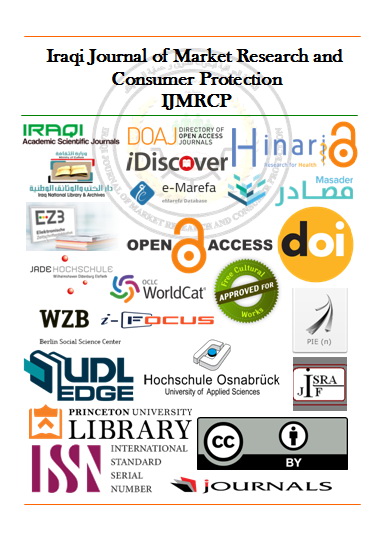SOIL ORGANIC CARBON AND AGGREGATE STABILITY AS AFFECTED BY SOIL MANAGEMENT PRACTICES
SOIL ORGANIC CARBON AND AGGREGATE STABILITY AS AFFECTED BY SOIL MANAGEMENT PRACTICES
Keywords:
Soil health indicators, Minimum Tillage, Conventional Tillage, Saturated hydraulic conductivity , SOM.Abstract
A field experiment was in research station Aljadriya at the College of Agricultural Engineering Sciences - University of Baghdad– Iraq (33̊ 16̍ 02̋ N. 44̊ 22̍ 33̋ E) during spring season - 2022. The purpose of the investigation was to evaluate the effect of Tillage, Crop Rotation and Crop Residues Management Practices on soil organic carbon (SOC) and active soil carbon (ASC), Aggregate stability and saturated hydraulic conductivity. The experiment was laid out on Randomized Complete Block Design (RCBD), with Split –Split Plot Arrangement. Factors were: Crop Residues (0% Residues (0%R) and 100% Residues (100%R)), Tillage (Minimum Tillage (MT) and Conventional Tillage (CT)) and Crop Rotation (Clover – Maize and Clover – Mung Bean) with four replicates. Results of the trial indicated that the best results were with the treatment (100% R + MT + Crop Rotation Clover – Mung Bean) giving (12.78 g SOC Kg-1 Soil , 178.92 mg AC Kg-1 Soil, 44.72% Aggregate stability, and 2.79 cm h-1 for Saturated hydraulic conductivity) compared with results of the Treatment (0% R+ CT + Crop Rotation Clover - Maize) giving (8.08 g SOC Kg-1 Soil, 88.88 mg AC Kg-1 Soil, Aggregate stability 39.05%, Saturated hydraulic conductivity 2.32 cm h-1). So, it can be concluded that adopting good management practices can improve many soil properties like Organic Carbon and Soil aggregate Stability leading to healthy and productive soil.
Published
Issue
Section
License
Copyright (c) 2025 Iraqi Journal of Market Research and Consumer Protection

This work is licensed under a Creative Commons Attribution 4.0 International License.





